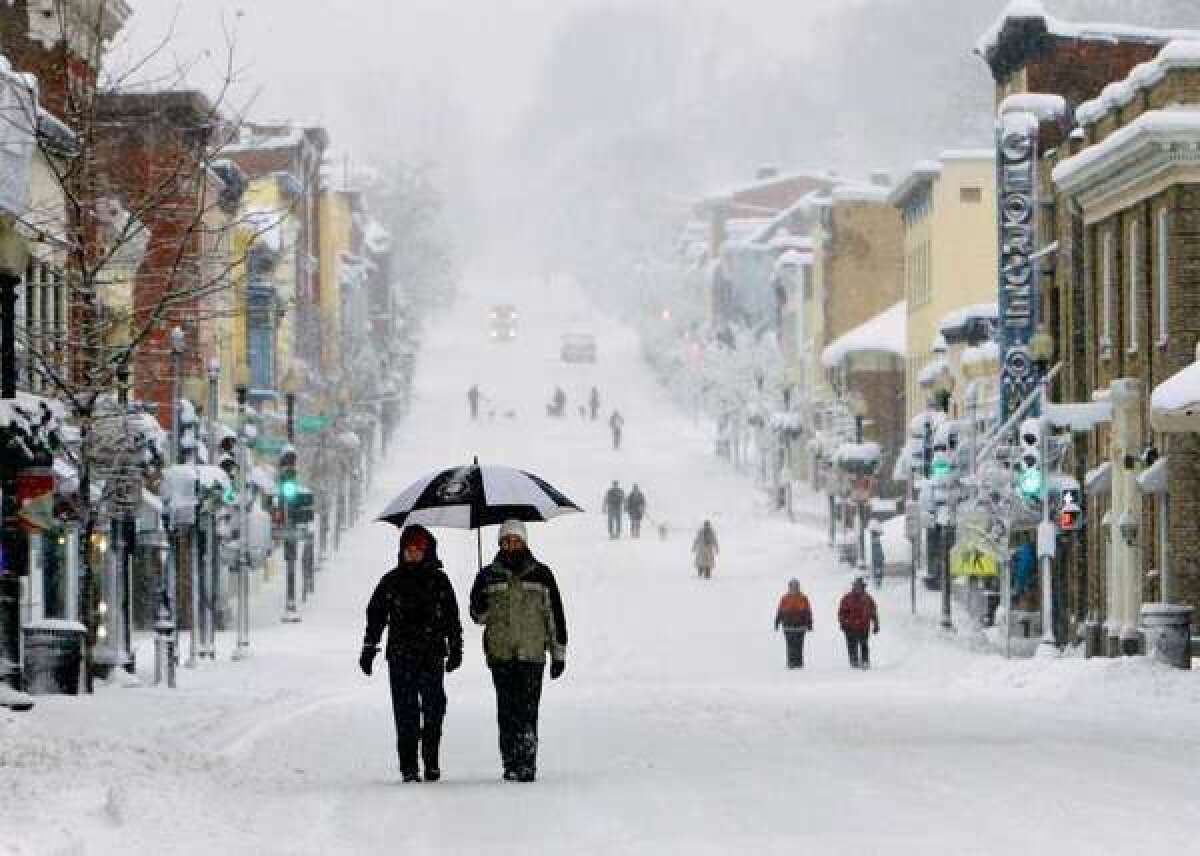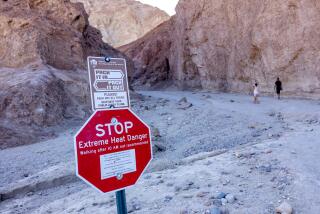Study: Warm climate or cold, heart deaths rise in the winter

- Share via
It doesn’t matter if you live in Los Angeles or in Massachusetts, you’re more likely to die of a heart-related problem such as heart attack, heart failure or stroke when the weather is (relatively) cold.
Researchers looked at death records from seven different U.S. locations -- L.A, Massachusetts, Texas, Arizona, Georgia, Washington and Pennsylvania -- and found a consistent pattern “across the board,” said Dr. Robert Kloner, a cardiologist at the Heart Institute at Good Samaritan Hospital in Los Angeles and a collaborator in a study presented Wednesday at the American Heart Assn.’s Scientific Sessions 2012.
In all of the sites the team surveyed, it found a 26% to 36% increase in circulatory deaths in winter compared with summer and early fall.
“This was surprising because climate was thought to be the primary determinant of seasonal variation in death rates,” Dr. Bryan Schwartz, the lead author of the study, said in a statement.
In an interview with The Times, Kloner said the results suggested that people acclimatize to the conditions where they live, and that factors beyond temperature -- including higher rates of flu infection, less-healthful lifestyles in winter months, and higher rates of depression when the weather takes a turn for the worse -- could be important in determining when deaths occur during a typical year.
He became interested in the subject of seasonality, he said, when he observed in the 1980s and 1990s that death rates in Los Angeles rose sharply in the winter -- even though the weather remained mild.
Much of Kloner’s work focuses on triggers of cardiovascular events, he added, noting that there are many triggers of heart problems beyond the chronic risk factors that often come to mind, such as high blood pressure, diabetes and smoking. Heart problems escalated after the 6.7-magnitude Northridge earthquake in January 1994, for instance, and after the L.A. Rams’ Super Bowl loss to the Pittsburgh Steelers in January 1980.
The holiday season also seems to affect health in Los Angeles, Kloner said.
“Maybe it’s obnoxious relatives, or financial stress,” he said.







